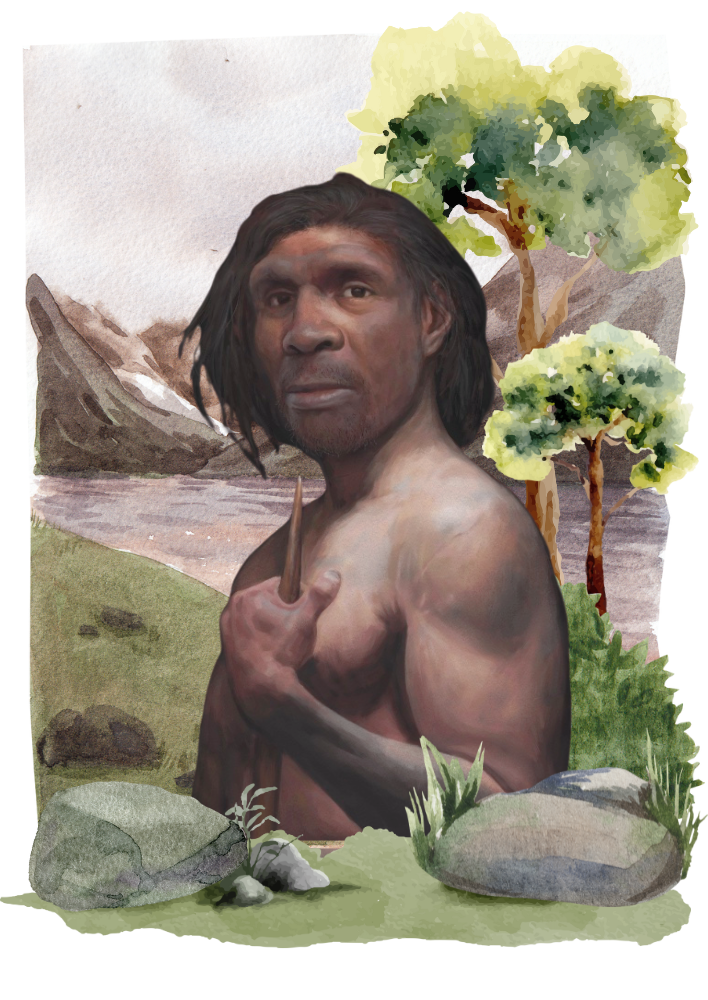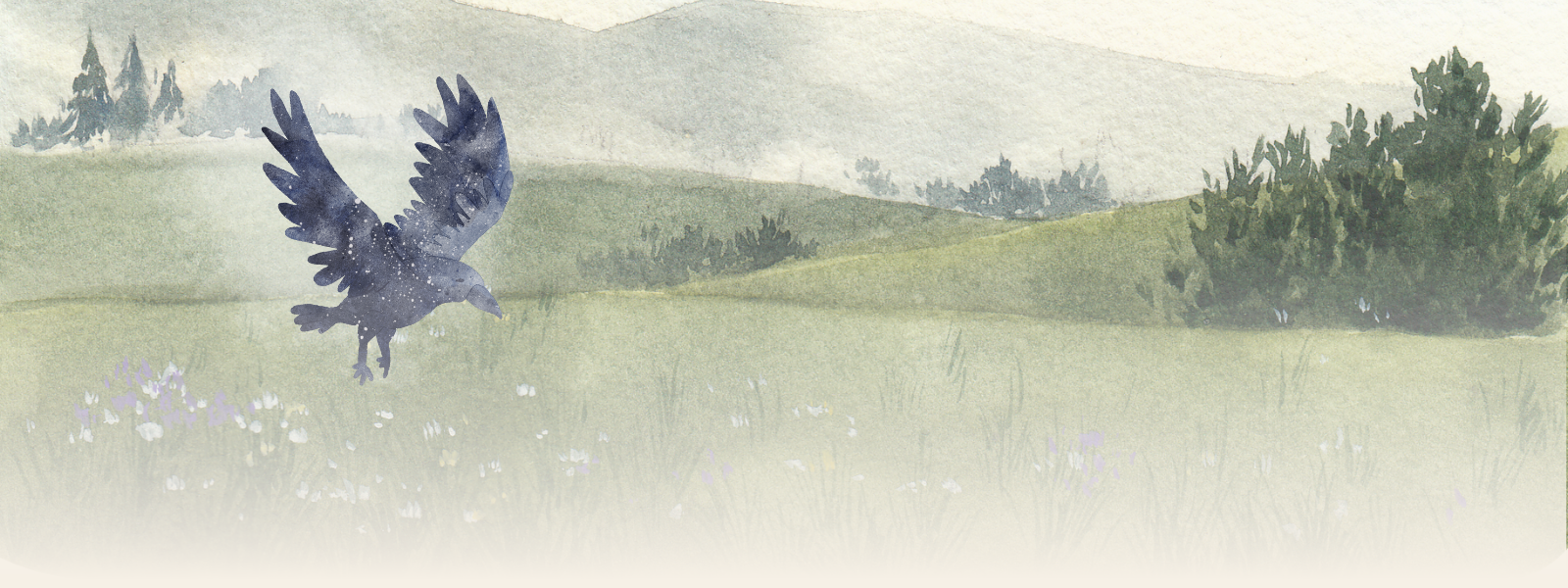Krampuk Aruuk
Krampuk Aruuk
Overview
Krampuk Aruuk, father of the legendary Kranva Aruuk, is a prominent figure in Neanderthal history.
Known for his controversial decision to divide the Aruuk Clan among his three children—Kranva, Korva, and Kavdem—Krampuk’s actions forever altered the political landscape of Neanderthal societies in Urtbi. Though often seen as progressive and innovative, his decision was largely pragmatic, motivated by doubts about his son Kavdem’s ability to lead.
This division allowed his followers to choose their own future paths, sparking
debates on leadership and tradition that resonate through Urtbi’s history.
Early Life
Krampuk was born into a time of rapid change among Neanderthal societies. The Aruuk Clan, like many others, faced challenges from rival Denisovan groups and the encroaching presence of Homo sapiens. Krampuk’s early life was shaped by constant migrations, resource conflicts, and the search for fertile hunting grounds. As a young leader, Krampuk gained renown for his resourcefulness and ability to foster alliances, setting the stage for his later decisions that would redefine the clan’s structure.
Marriage to Ykuva Avkoran
Krampuk’s union with Ykuva Avkoran was as much a political alliance as a personal relationship. The Avkoran Clan hailed from a distinct Neanderthal ethnicity, known for their deep adherence to traditionalist values and advanced hunting techniques suited to rugged, forested terrains. Their cultural practices emphasized strict hierarchy and gender roles, which Ykuva embodied with dignity. As a member of this traditionalist clan, Ykuva understood her role as Clan Mother to the Aruuk Clan, standing at Krampuk’s side and supporting his leadership while deferring to the importance of their children.
While their marriage began as an arrangement devoid of romantic affection, mutual admiration and respect grew over time. Krampuk appreciated Ykuva’s keen intellect and resilience in maintaining harmony within the clan, and Ykuva respected Krampuk’s strength and adaptability in challenging traditions when necessary. Together, they embodied the balance of progress and tradition, uniting their clans through shared purpose rather than emotion. This alliance brought the Avkoran’s hunting expertise and strict cultural values into the Aruuk Clan, fostering both tension and innovation.
The Avkoran Clan represented a distinct ethnicity of Neanderthals, characterized by their adaptation to forested and mountainous environments. Their darker skin and hair provided camouflage in dense forests, while their shorter, stockier builds made them adept at traversing rugged terrain. These physical traits were complemented by a cultural emphasis on strict traditionalism, hierarchical governance, and advanced tracking and trapping techniques.
Their union with the Aruuk Clan introduced a blend of traditions and skills that reshaped both groups. The Avkoran’s strict patrilineal traditions and emphasis on arranged unions influenced the Aruuk Clan’s perceptions of leadership and gender roles. However, Krampuk’s willingness to adapt traditions clashed with the Avkoran ethos, creating tension but also fostering innovation. The mixed heritage of Krampuk and Ykuva’s children became a symbol of resilience and adaptability, with their successes bridging gaps between differing Neanderthal traditions.
The Succession Crisis
In his later years, Krampuk’s health began to decline, and the question of succession loomed large. Traditionally, Neanderthal clans followed patrilineal succession, but Krampuk’s confidence in Kavdem’s leadership abilities wavered. Rather than risk the decline of the Aruuk Clan under a single, unproven leader, Krampuk chose to divide the clan among his three children.
Kranva Aruuk
The eldest daughter and natural leader, Kranva was known for her wisdom and resilience. In the beginning, Kranva and Korva’s supporters were mostly the same, as both women were seen as strong and resourceful like their father, yet they also shared the intelligent, calm-yet-commanding demeanor of their mother. However, through peaceful debates, their differences became clear: Kranva expressed a deep desire to remain in the ancestral homeland, preserving its traditions and building a stable foundation.
Her leadership laid the foundation for Tavar’s later emergence as a cultural and spiritual hub.
Korva Aruuk
A skilled negotiator and strategist, Korva eventually distinguished herself by her desire to explore the unknown. Inspired by tales of the South where the first great Clan Fathers were said to have originated, Korva led her faction southward, venturing into uncharted lands.
Her journey eventually brought her to Africa, where she discovered thriving Sapien communities quietly developing their own ways of life. This venture not only broadened her knowledge but also laid the groundwork for future exchanges between Neanderthal and Sapien groups. Korva’s nomadic faction fostered alliances with neighboring groups, leveraging her resourcefulness and charisma.
Kavdem Aruuk
Though lacking the leadership qualities of his siblings, Kavdem’s faction found its niche in specialized hunting and crafting, contributing to inter-clan trade. Notably, the most traditionalist members of the clan chose to join Kavdem’s faction, considering the idea of "converting to a female-led clan" blasphemous. This sparked a minor uproar within the Aruuk Clan, as members divided sharply between traditionalists and adapters following Krampuk’s announcement. The separation occurred swiftly, with each group gravitating toward their chosen path amidst heated debates over the future of their society.
Kavdem’s faction maintained a stronghold on traditional Neanderthal practices, solidifying his role as a stabilizing, if limited, figure.
In his later years, Krampuk’s health began to decline, and the question of succession loomed large. Traditionally, Neanderthal clans followed patrilineal succession, but Krampuk’s confidence in Kavdem’s leadership abilities wavered. Rather than risk the decline of the Aruuk Clan under a single, unproven leader, Krampuk chose to divide the clan among his three children.
Legacy
Krampuk’s decision set a precedent for leadership and governance in Neanderthal societies. By empowering his children to lead independently and granting followers the freedom to choose their paths, he introduced a degree of autonomy and adaptability previously unseen in Neanderthal culture. His legacy is a complex one—while his actions ensured the survival and growth of the Aruuk Clan, they also planted the seeds of inter-faction rivalry and fragmentation.
Despite the controversy, Krampuk is remembered as a pragmatist who prioritized the well-being of his people over rigid adherence to tradition. His legacy endures through his children, particularly Kranva, whose achievements as the founder of Tavar cemented the Aruuk name in history.
Relationships

Remove these ads. Join the Worldbuilders Guild









Comments